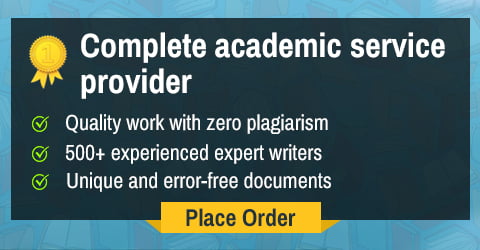INTRODUCTION
All teachers assess the performance of learners with the help and support of learning support practitioners using various methods of assessment. In this report, various methods of assessment are defined, which gives a better understanding of the roles of learners, teachers and learning support practitioner and their contribution towards the planning of future learning.
1.1: Compare and contrast the roles of the teacher and the learning support practitioner in assessment of learners' achievements
Teachers assess their students by monitoring the whole class's progress and report it back to their parents and respective staff while learning support practitioners support the teachers in the process of this assessment. Teachers, as well as learning support practitioner, has the main objective of welfare and progress of the students, but teachers achieve their goals by regular planning and developing lessons for them whereas learning support practitioner assist teachers by giving their input in this process. ( Earl, 2012)
Also Use Our Free Grammar Checker Tool
1.2: Difference between formative and summative assessment
|
Formative assessment |
Summative assessment |
|
Formative assessment is a process of regular monitoring and assessing the students' performances and reporting the feedback, to improve the overall learning process. |
Summative assessment is a process of timely assessment of students' performances by setting benchmarks and certain standards. |
|
Examples of formative assessment are regular learning and casual assignments, regular class quiz etc. |
Examples of summative assessment are examinations, projects, assignments etc. |
1.3: Explain characteristics of assessment of learning
Assessment of learning is a process of evaluating and analysing students' performances, some of its characteristics are listed below:
- Teachers develop tasks and lessons to improve learning process and measure students' performances. ( Leahy and Wiliam, 2012)
- Provide feedback to students' parents and institutional staff so that they can too evaluate students' performances and achievements.
- Aware students about their aims and goals and help them to achieve those goals by explaining them all the expectations. ( Schuwirth and Van der Vleuten, 2011)
1.4: Explain the importance and benefits of assessment for learning
Assessment for learning is significantly beneficial for students and for teachers too as it compares learners performances with pre setted goals. ( Wiliam, 2011) Assessments are beneficial for students as provide information about required skills and knowledge students should have to pursue a course and it provides reliable data on students requirements and achievements. Teachers are also benefited by assessment as they design lessons and tasks which improves learning process and as it provides proof that teachers' efforts are valuable in improving performances of learners. ( Stiggins and Chappuis, 2012)
1.5: Explaining how assessment for learning can contribute to planning for future learning carried out by the teachers, learners and the learning support practitioner
Teachers contribute in planning for future learning by intensive thinking over developed strategies used for students or learners and analysing performances by regular quiz and examinations. Learners contribute by self assessment and engage in activities which can improve their performances and results in overall success. Learning support practitioner also contribute by advise and support teachers about new additional benchmarks to improve quality of learning. ( Trauth-Nare and Buck, 2011)
Also Check: Case Study Help
CONCLUSION
Teachers and learning support practitioner plays an important role in improving learners performances by evaluating and assessing it using benchmarks and regular monitoring. They provides feedback to learners' parents and institutional staff so that they can also know improvements in learner's performances.
REFERENCES
Books and Journals:
Earl, L. M. , 2012. Assessment as learning: Using classroom assessment to maximize student learning. Corwin Press.
Leahy, S. and Wiliam, D., 2012. From teachers to schools: scaling up professional development for formative assessment. Assessment and learning, pp.49-71.
Schuwirth, L. W. and Van der Vleuten, C. P. , 2011. Programmatic assessment: from assessment of learning to assessment for learning. Medical teacher, 33(6). pp.478-485.
Stiggins, R .J. and Chappuis, J., 2012. An introduction to student-involved assessment for learning (pp. 29-30). Boston, MA: Pearson.
Trauth-Nare, A. and Buck, G., 2011. Assessment for learning. The Science Teacher, 78(1). p.34.
Wiliam, D., 2011. What is assessment for learning?. Studies in educational evaluation, 37(1). pp.3-14.
Also Check:

















